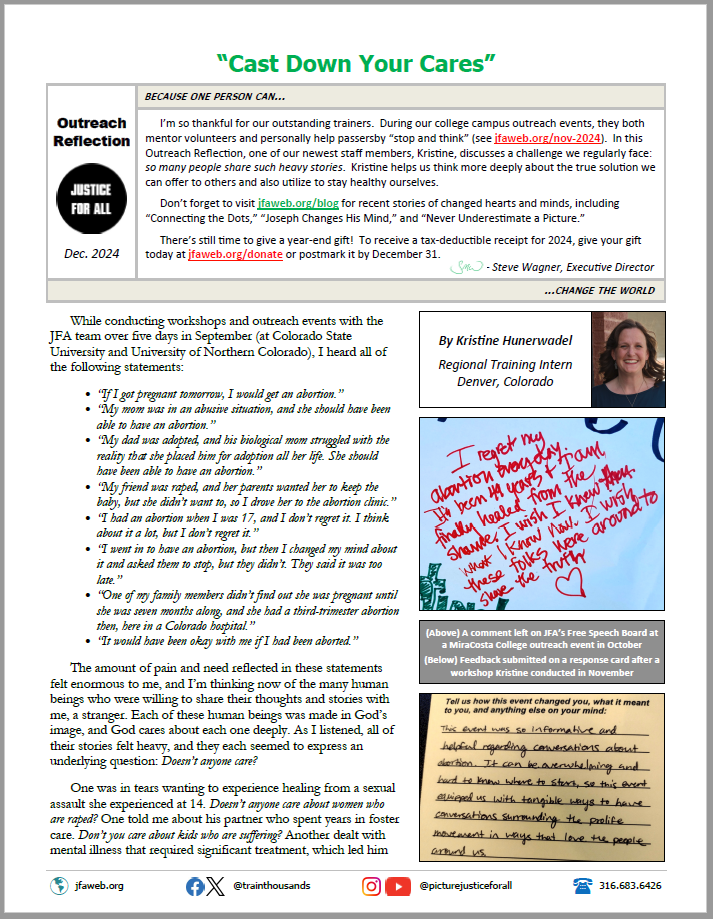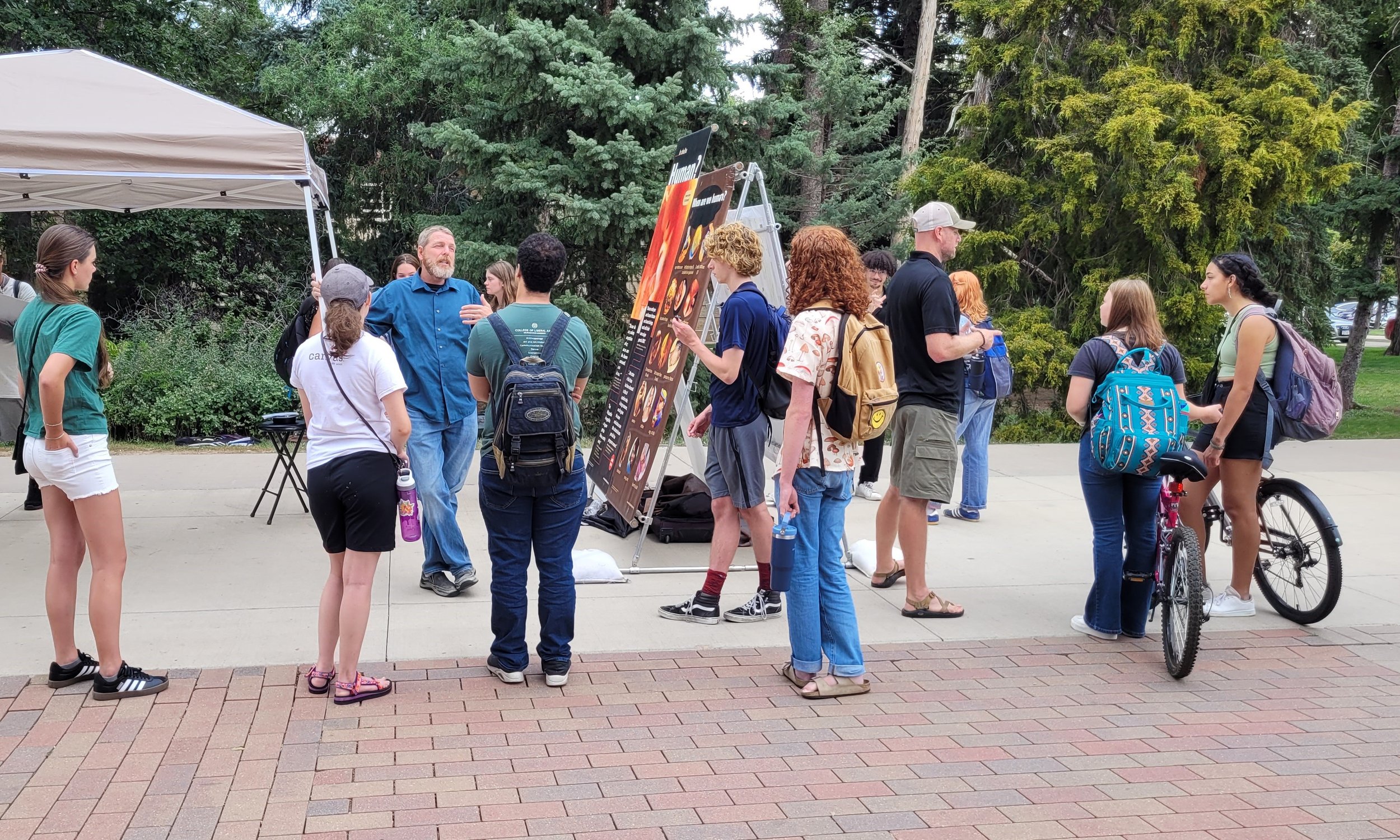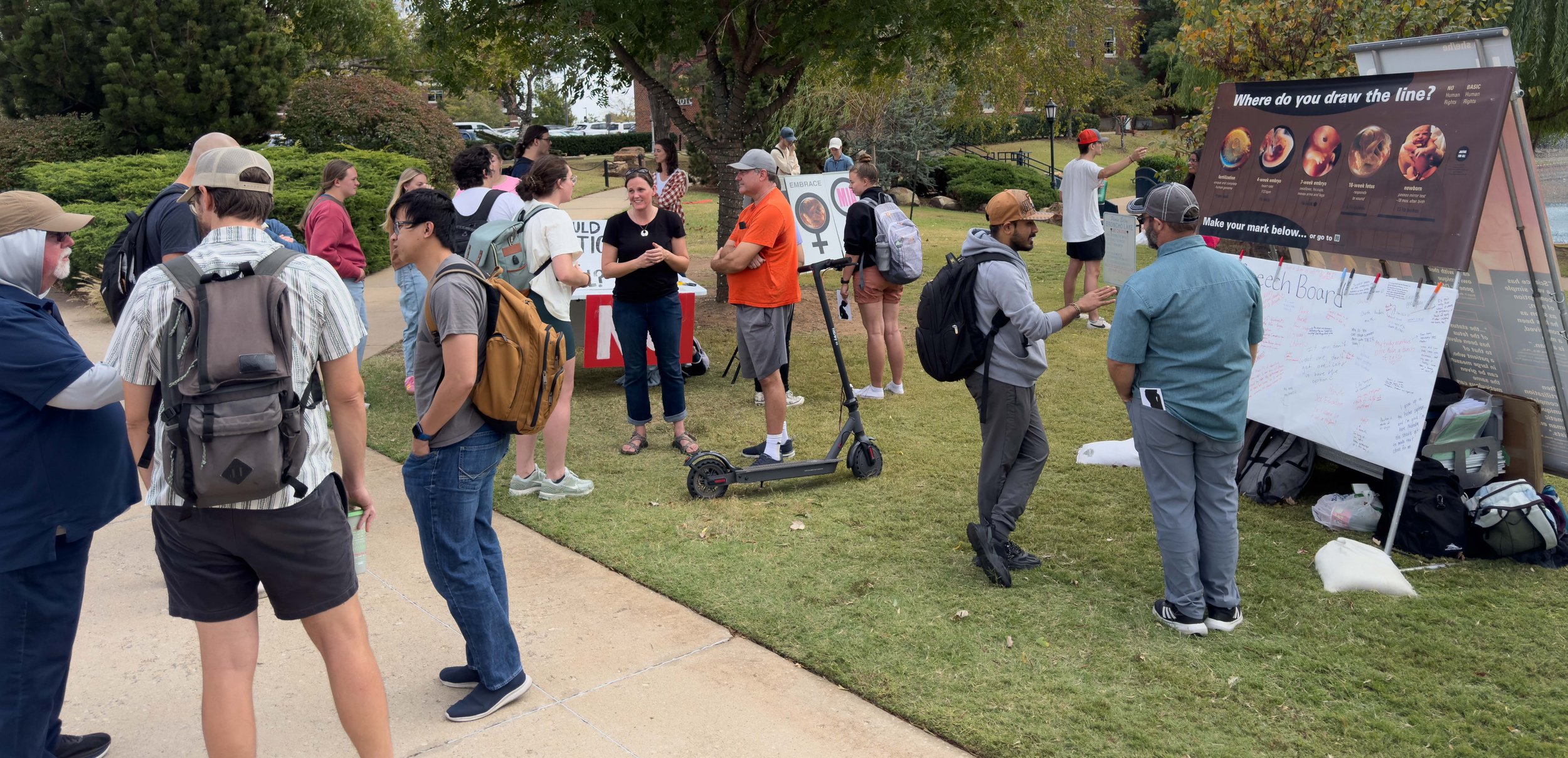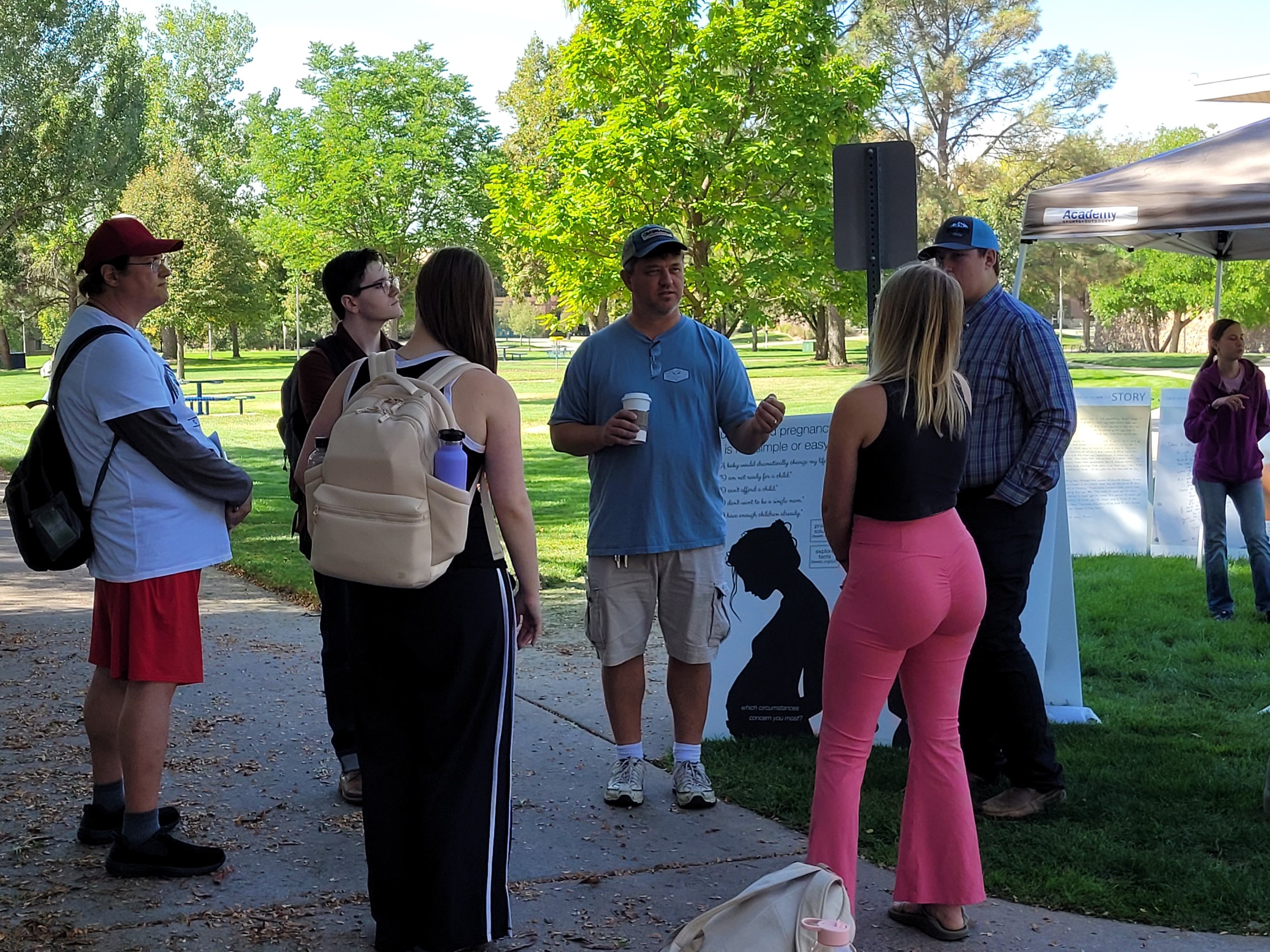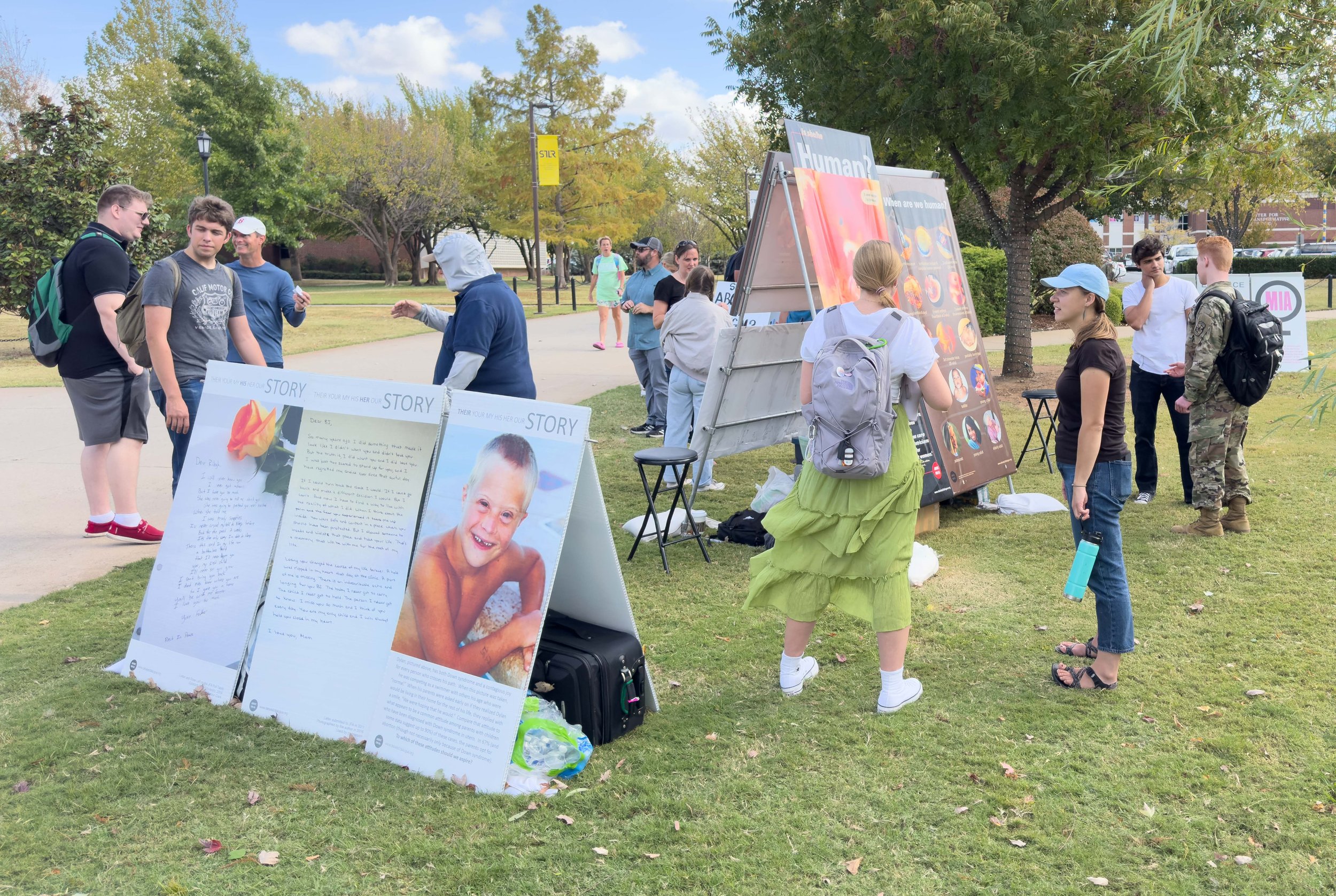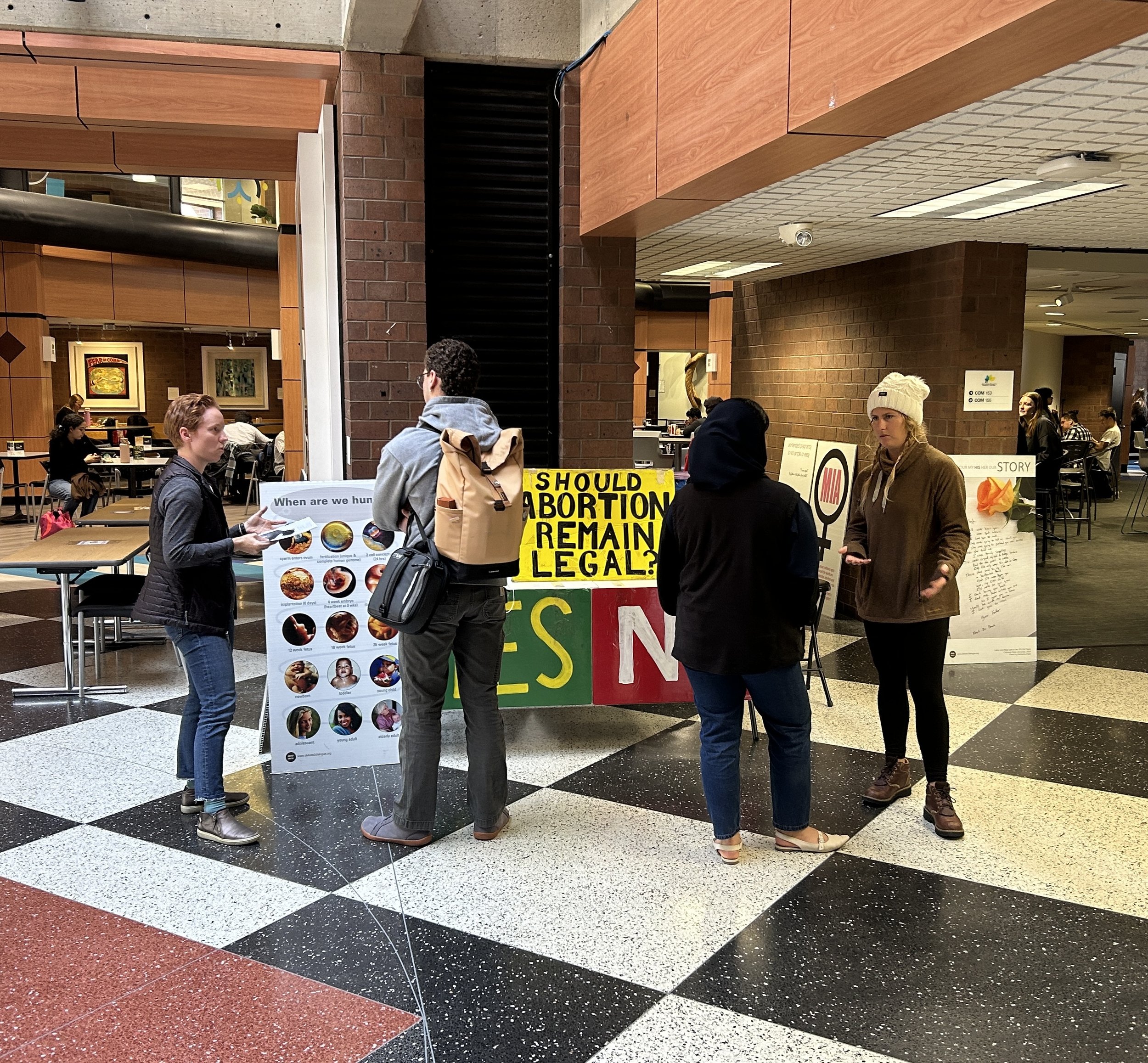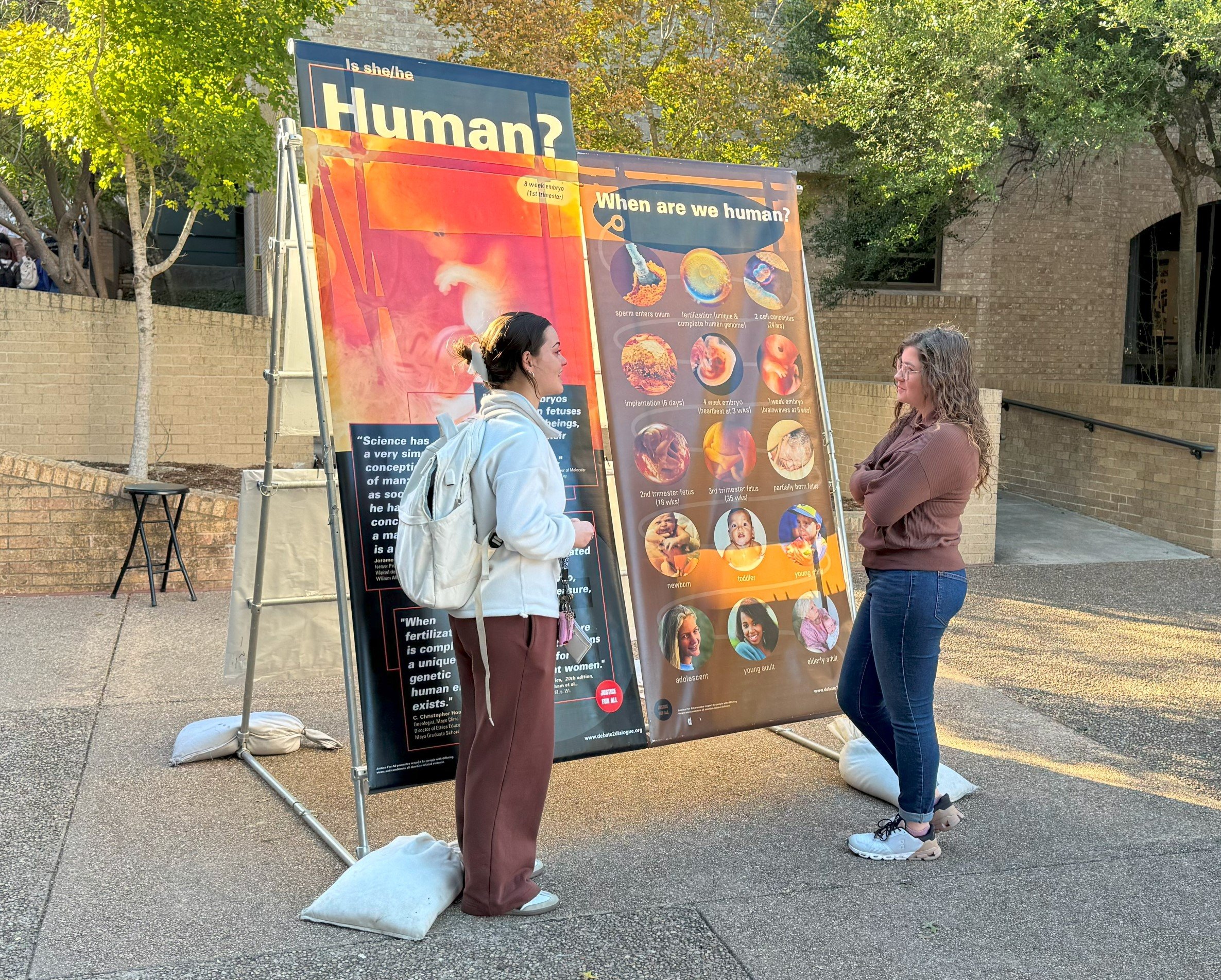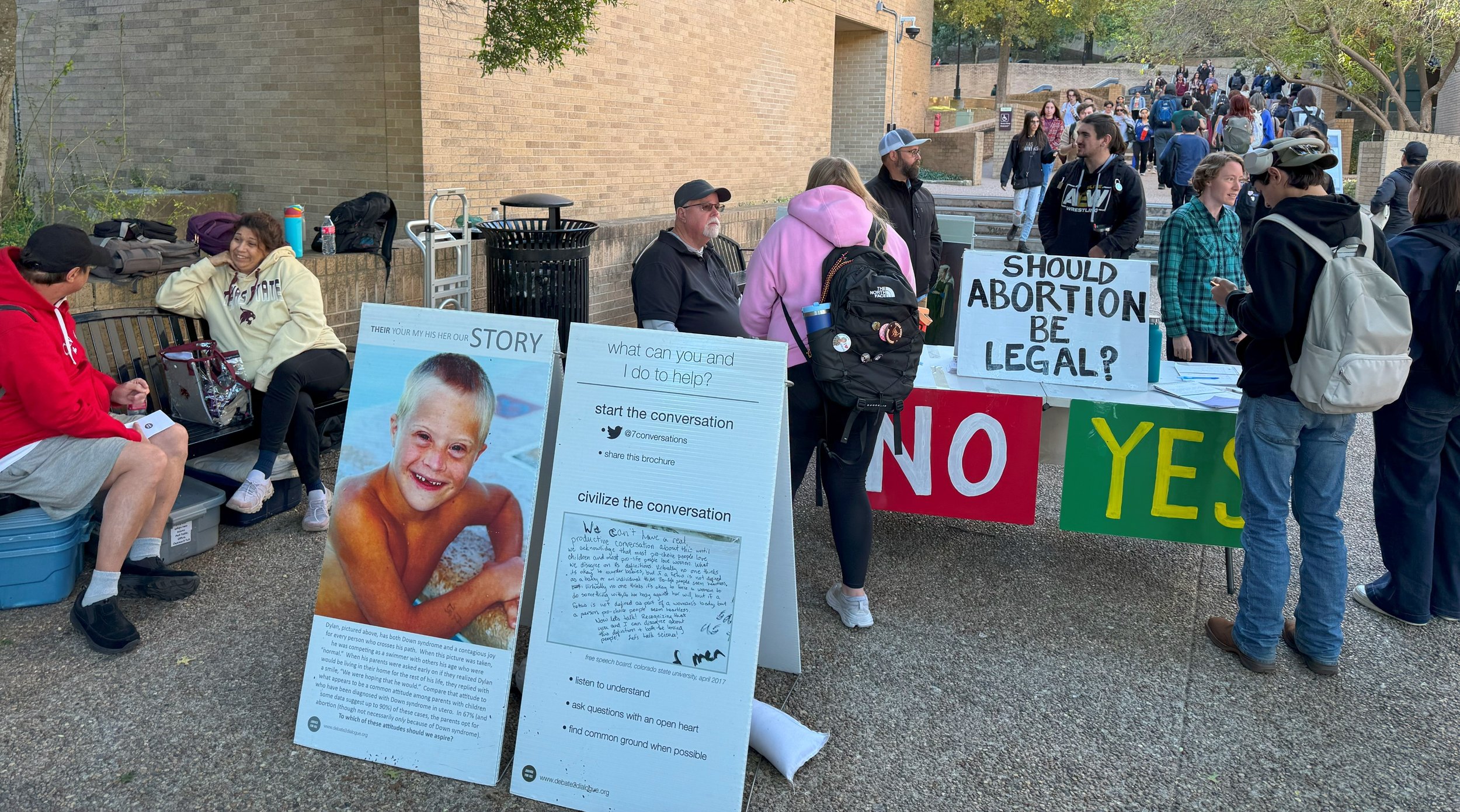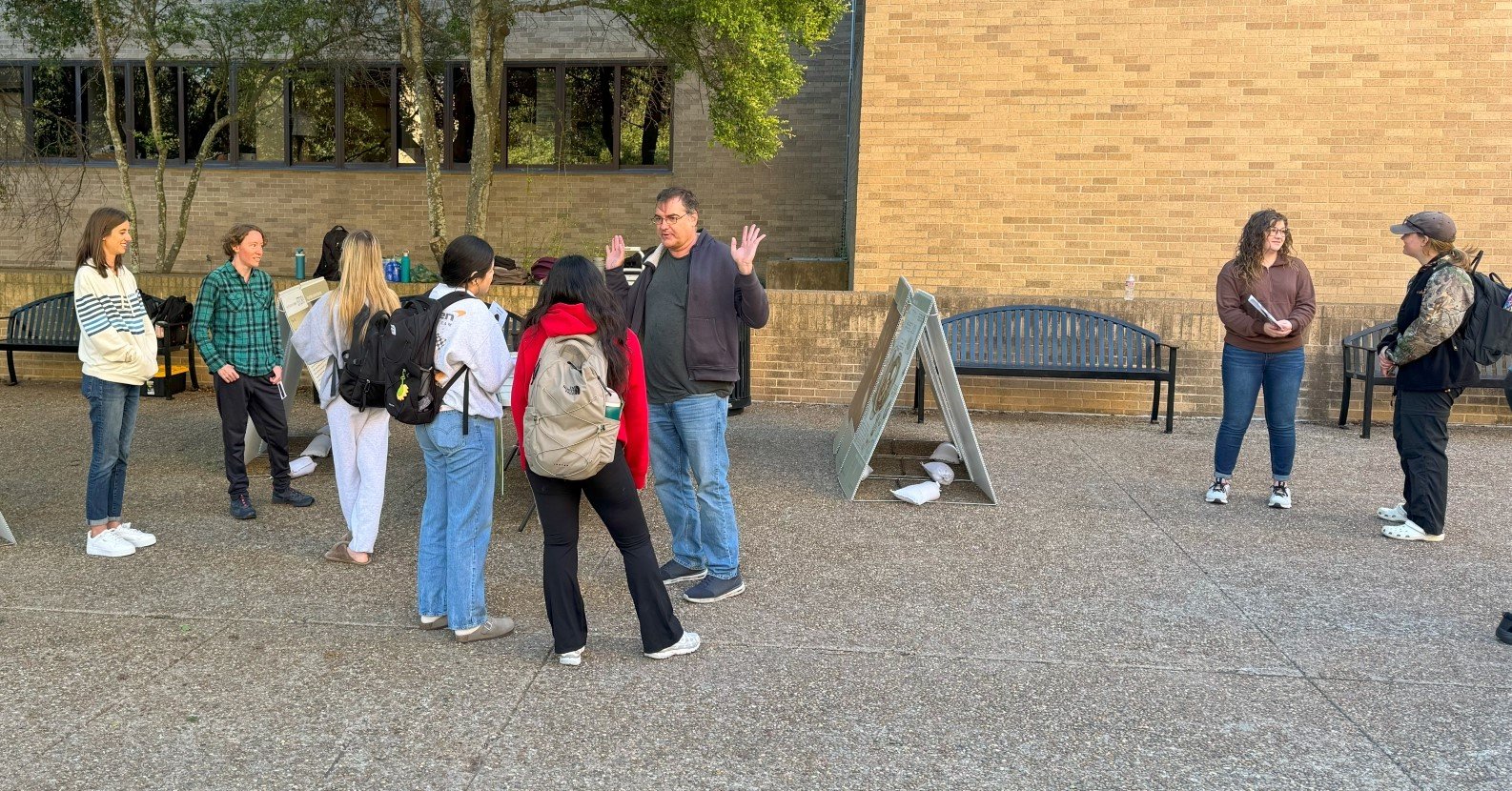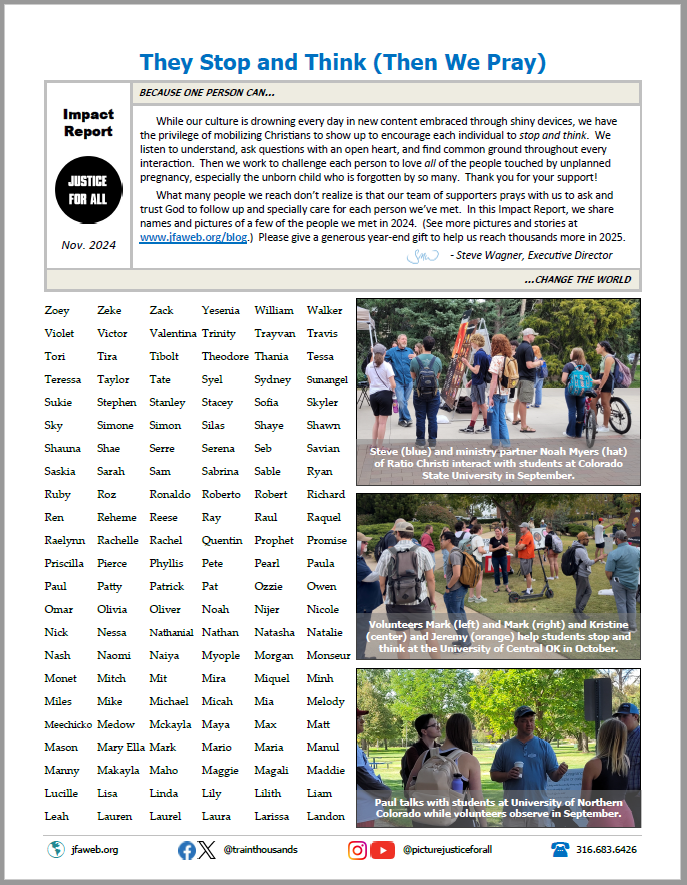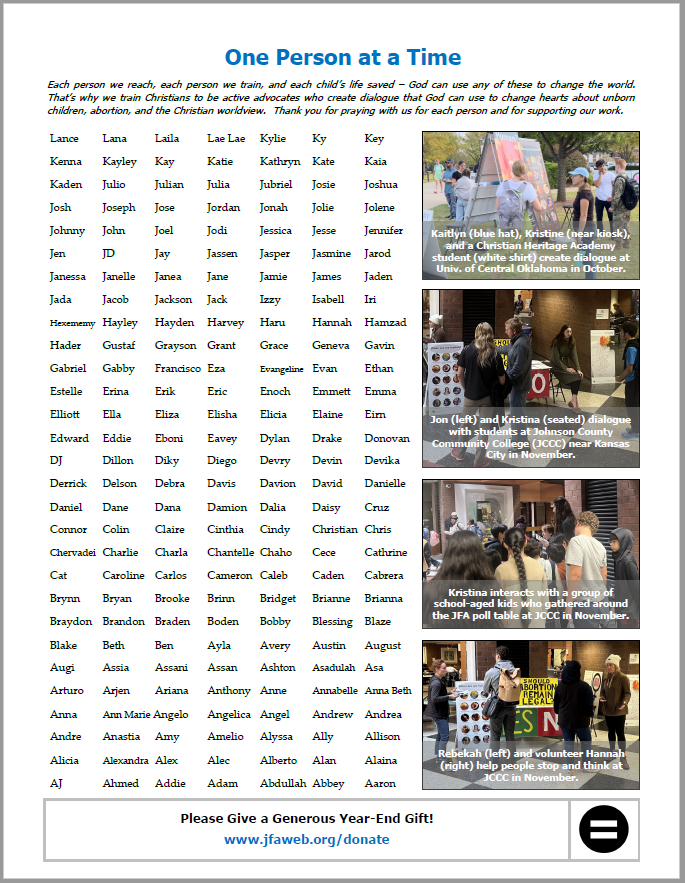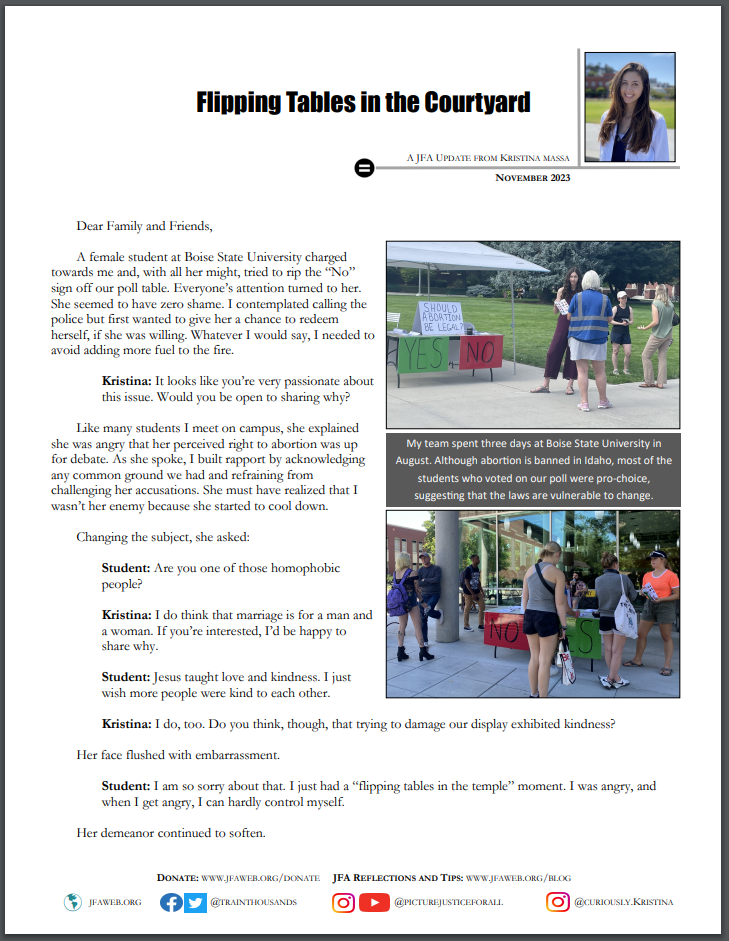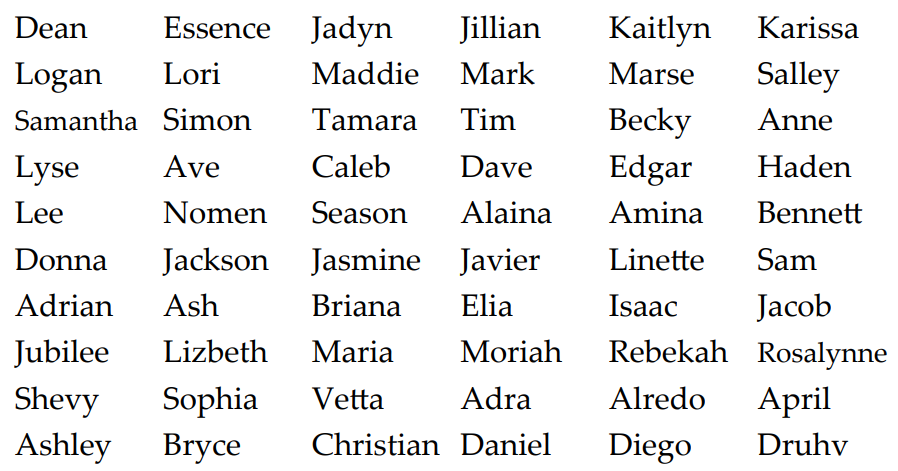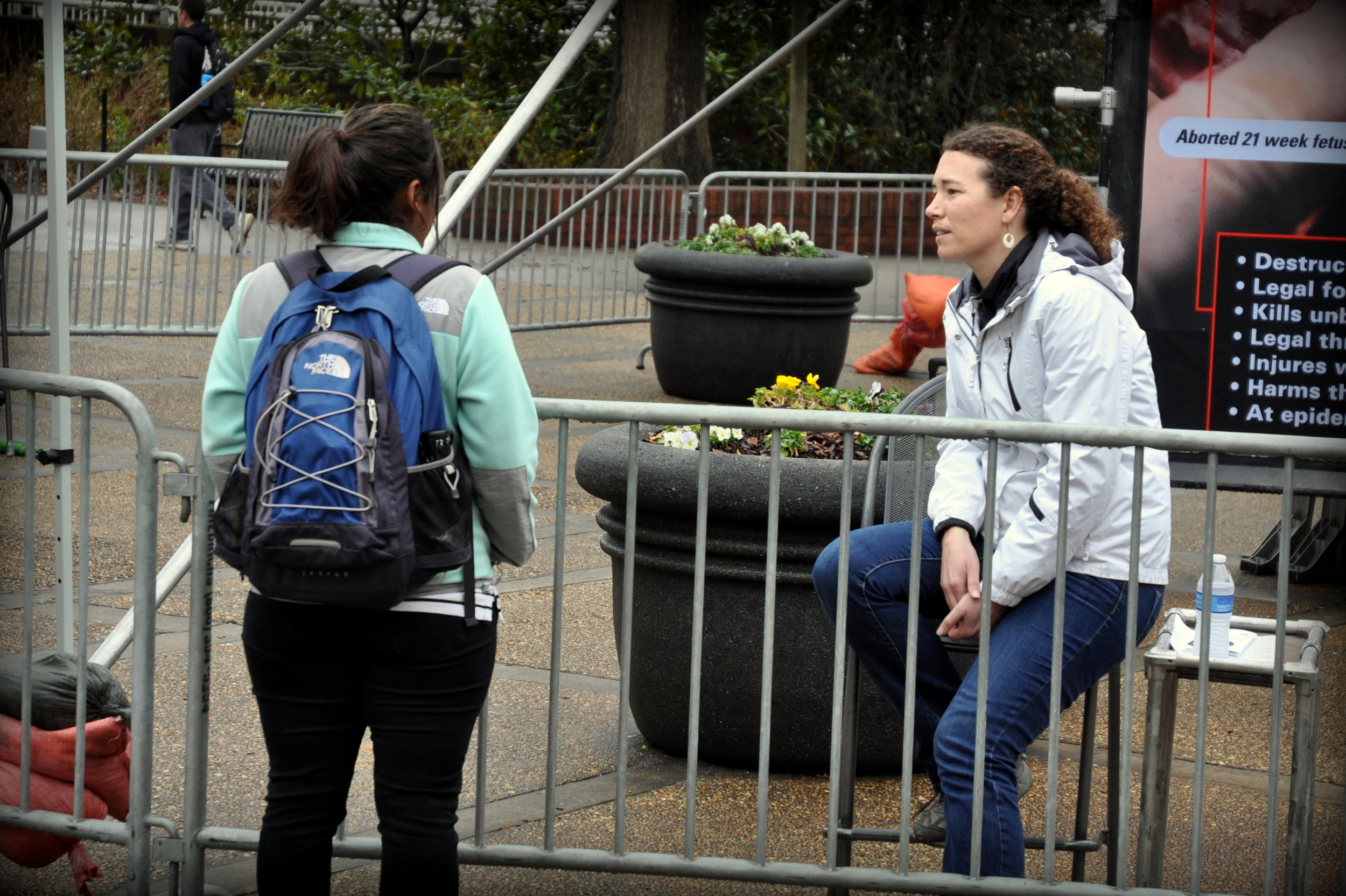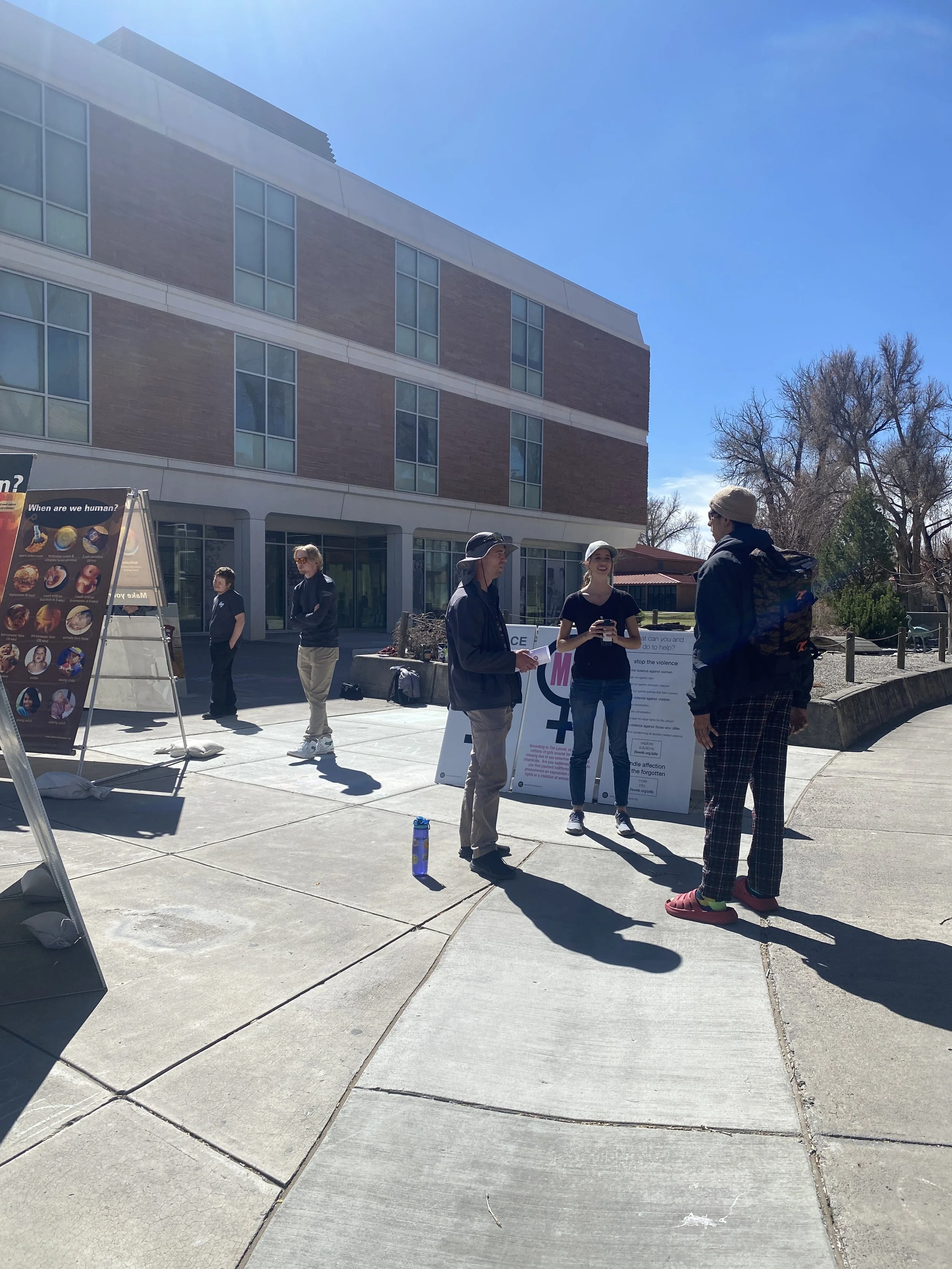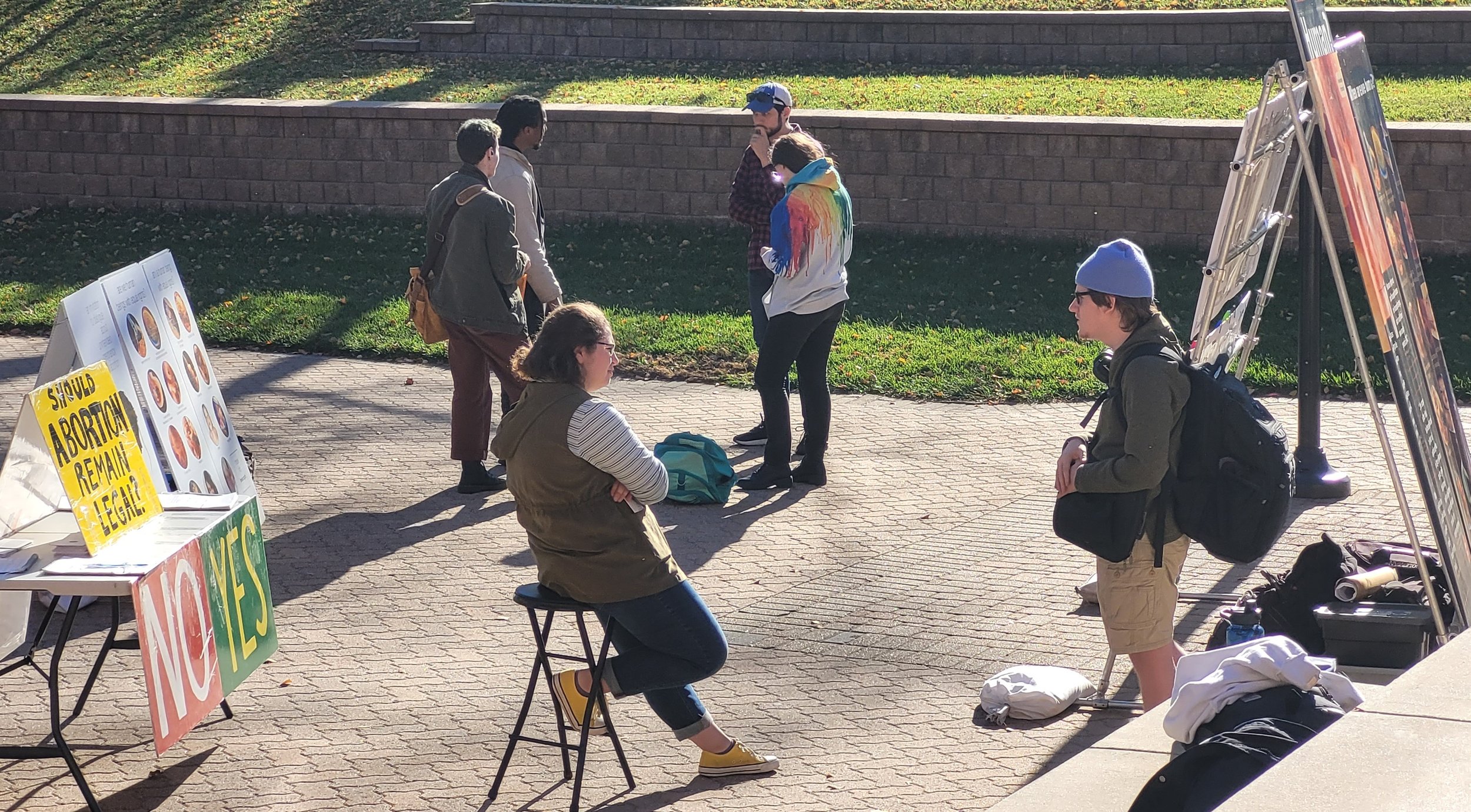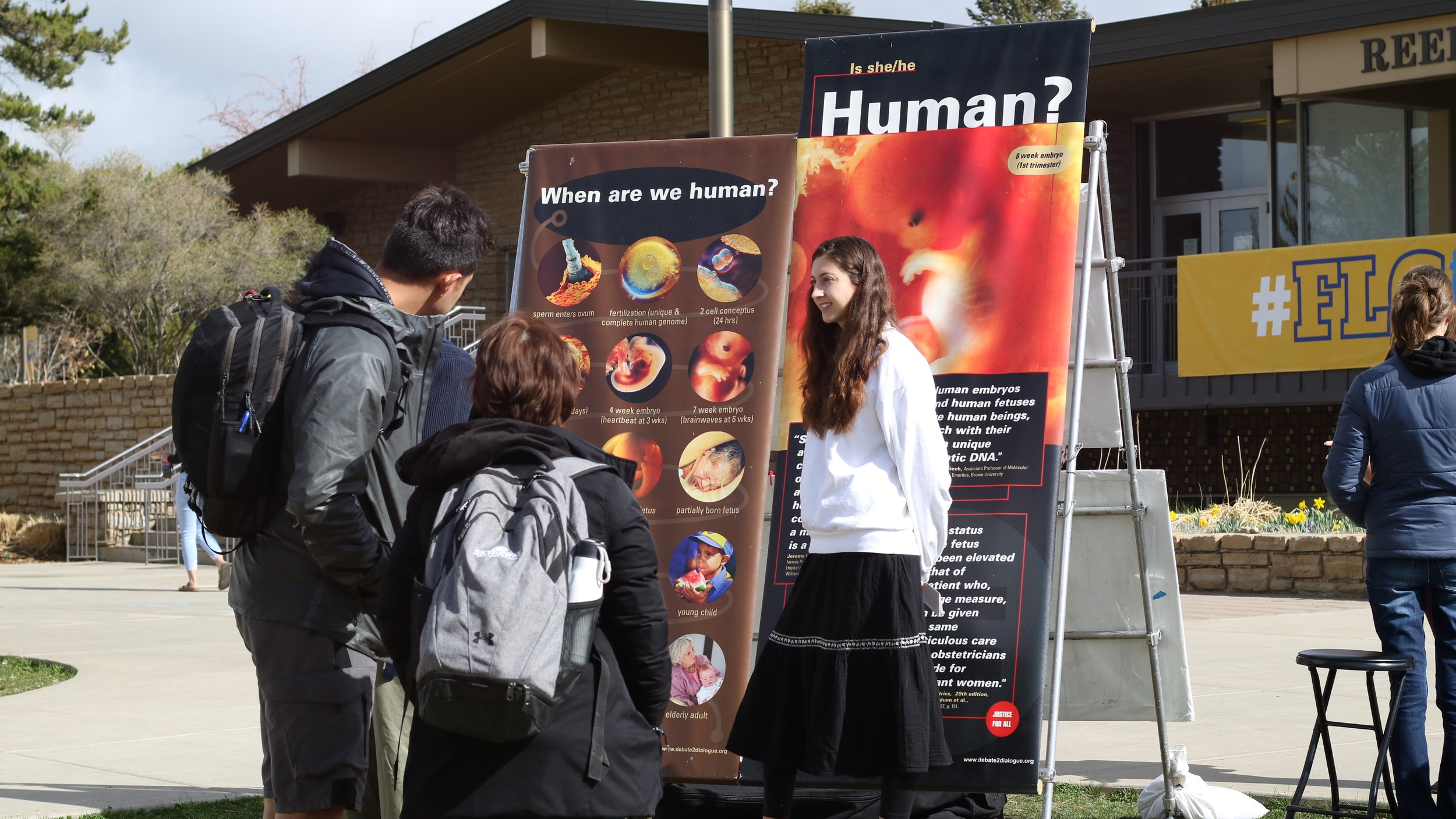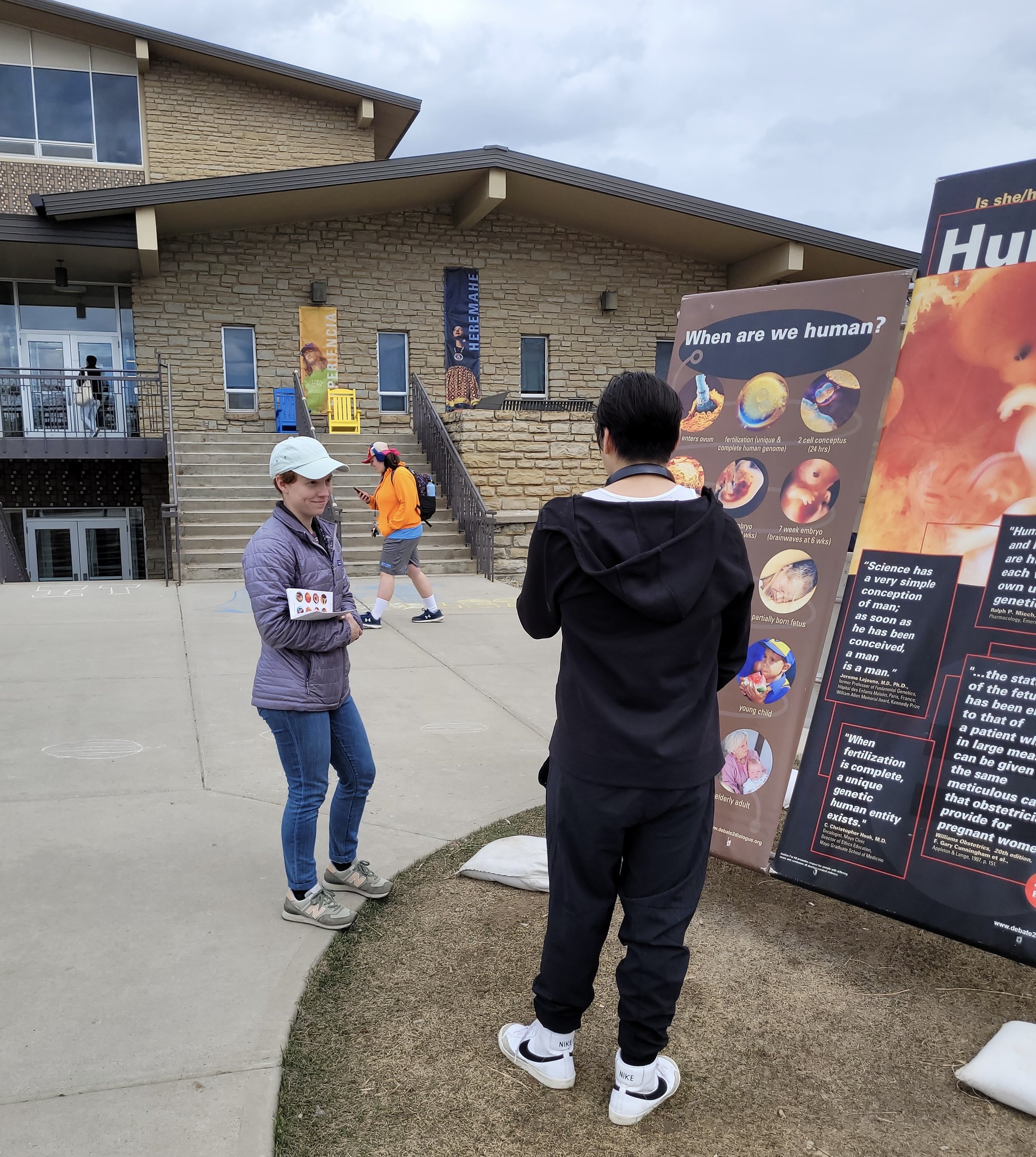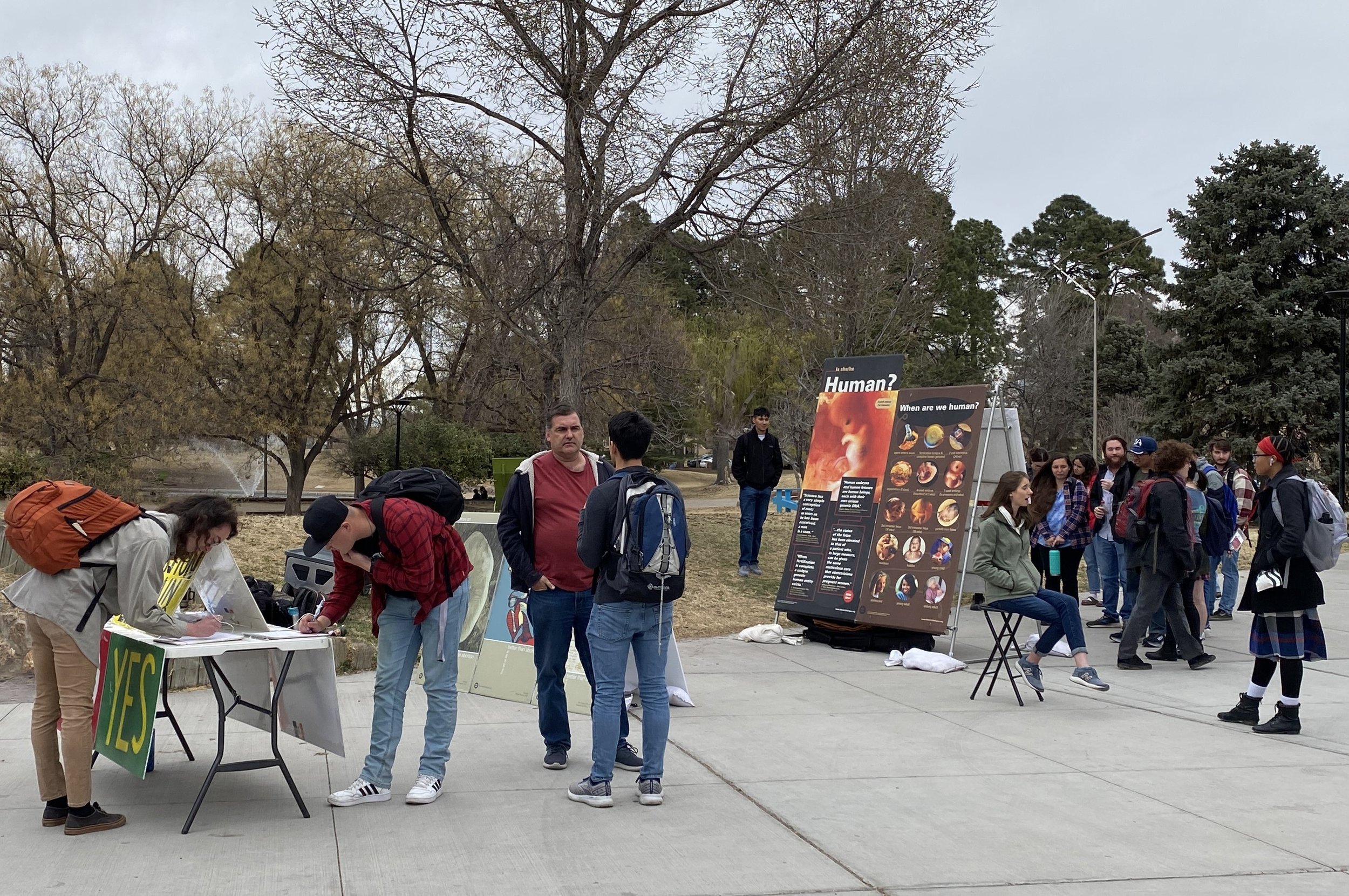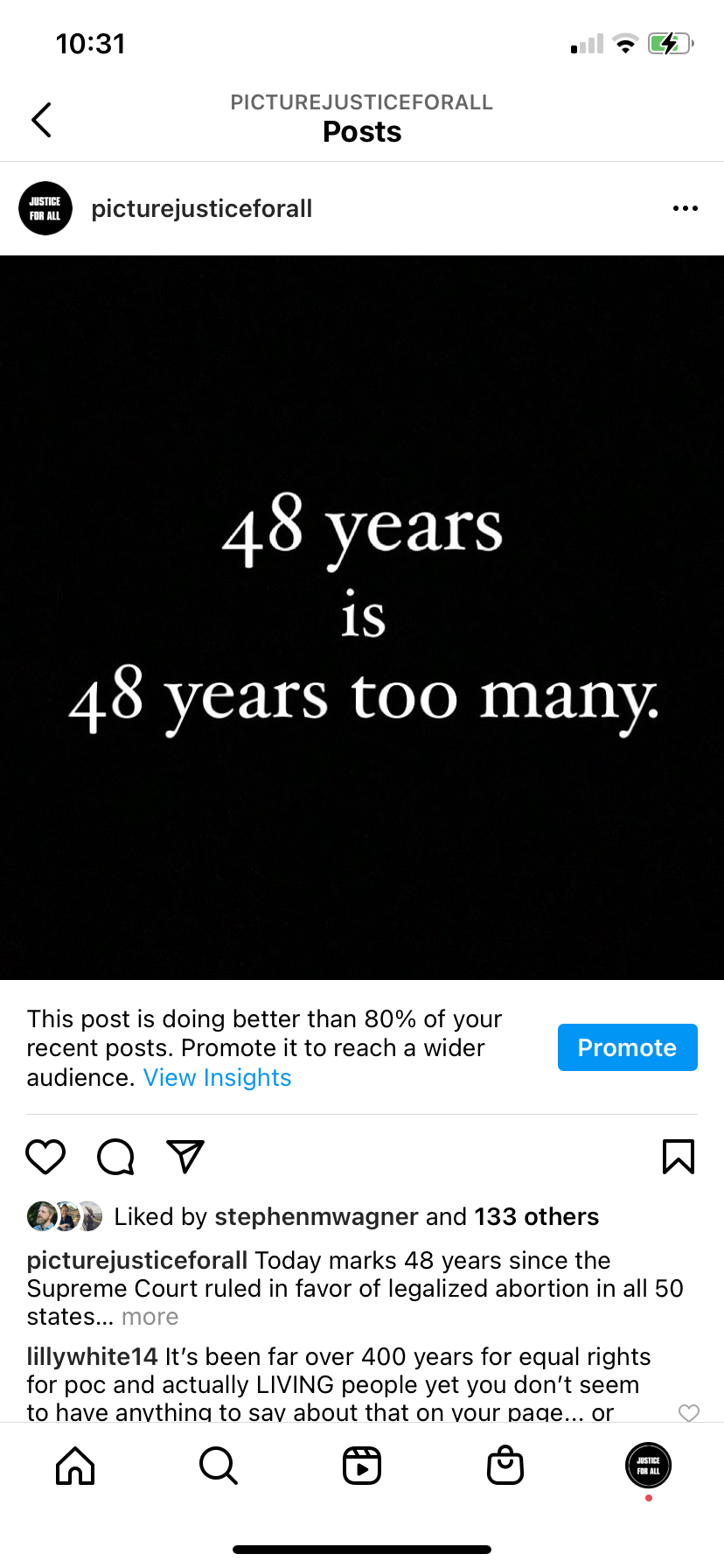Note: We are reposting this reflection from Dec. 11 with an introduction from JFA's Executive Director. For Kristine's original post for her readers, click here.
Introduction
I’m so thankful for our outstanding trainers. During our college campus outreach events, they both mentor volunteers and personally help passersby “stop and think” (see jfaweb.org/nov-2024). In this Outreach Reflection, one of our newest staff members, Kristine, discusses a challenge we regularly face: so many people share such heavy stories. Kristine helps us think more deeply about the true solution we can offer to others and also utilize to stay healthy ourselves.
Don’t forget to visit jfaweb.org/blog for recent stories of changed hearts and minds, including “Connecting the Dots,” “Joseph Changes His Mind,” and “Never Underestimate a Picture.”
There’s still time to give a year-end gift! To receive a tax-deductible receipt for 2024, give your gift today at jfaweb.org/donate or postmark it by December 31.
-Steve Wagner, Executive Director
Outreach Reflection
by Kristine Hunerwadel, Regional Training Intern (Denver, CO)
While conducting workshops and outreach events with the JFA team over five days in September (at Colorado State University and University of Northern Colorado), I heard all of the following statements:
“If I got pregnant tomorrow, I would get an abortion.”
“My mom was in an abusive situation, and she should have been able to have an abortion.”
“My dad was adopted, and his biological mom struggled with the reality that she placed him for adoption all her life. She should have been able to have an abortion.”
“My friend was raped, and her parents wanted her to keep the baby, but she didn’t want to, so I drove her to the abortion clinic.”
“I had an abortion when I was 17, and I don’t regret it. I think about it a lot, but I don’t regret it.”
“I went in to have an abortion, but then I changed my mind about it and asked them to stop, but they didn’t. They said it was too late.”
“One of my family members didn’t find out she was pregnant until she was seven months along, and she had a third-trimester abortion then, here in a Colorado hospital.”
“It would have been okay with me if I had been aborted.”
A comment left on JFA’s free speech board at a MiraCosta College outreach event in October
The amount of pain and need reflected in these statements felt enormous to me, and I’m thinking now of the many human beings who were willing to share their thoughts and stories with me, a stranger. Each of these human beings was made in God’s image, and God cares about each one deeply. As I listened, all of their stories felt heavy, and they each seemed to express an underlying question: Doesn’t anyone care?
Feedback submitted on a response card after a workshop Kristine conducted in November
One was in tears wanting to experience healing from a sexual assault she experienced at 14. Doesn’t anyone care about women who are raped? One told me about his partner who spent years in foster care. Don’t you care about kids who are suffering? Another dealt with mental illness that required significant treatment, which led him to empathize with the need for women to have affordable healthcare. Don’t you care about women who might die if they can’t get adequate medical care? Another had recently lost her mom, and she was concerned that she might become suicidal if anything were to be added to her plate. I’m struggling so hard to just get by right now, and I’m close to being suicidal myself. How can you expect someone like me to care for a child right now? Several appeared to feel like they were a burden to the people who had raised them, too, instead of a blessing. Don’t you care about me?
As I was processing a conversation I had just had with a particularly hurting student, a JFA team member noted that the Christian worldview includes “the freedom of being able to not think about ourselves.” I was struck by his comment, because in it he alluded to something that is available in Jesus that so many people we talk to haven’t been able to experience yet, and that I take for granted far too often: the freedom to not be shackled by my concerns. It made me stop and think. The staff member was not inferring that people should deny that they have concerns, or that they should stop wanting to have their needs met. He wasn’t saying the cares of the people we meet at our outreach events aren’t real, or heart-felt, or that they haven’t gone through the difficult experiences they have gone through. He also was not suggesting that we shouldn’t care in the same way that Jesus does about their experiences, or that we shouldn’t step in to meet their needs as we are able. He was simply describing the gift it is to be able to lay our burdens down and take a break from them – the gift of being able to “cast down our cares.”
As Christians, we have a worldview that tells us that we are seen, known, and loved by the God who made us, and that we can see, know, and love others freely in His name. This is true even if we weren’t told it as children, even if we didn’t experience it firsthand until we met Him, and even when we have been hurt by others in devastating ways, as many of us have been. We get to bring our cares and concerns to Him (see I Peter 5:7), set them down before Him, trust Him with them, and then experience His love, care, and healing deeply, fully, and personally. We also then get to freely focus away from our cares (which can be so liberating!) and care for others around us in a self-forgetful way. This time of year gives us a special reminder that God saw our enormous need, and humbly gave of Himself freely and fully to meet that need. It reminds us, too, of people like Mary, Joseph, the shepherds, and the wise men, who humbly gave of themselves to honor Jesus and care for those around them. The following lyrics from “Hark! The Herald Angels Sing” put it this way:
Hail the Heaven-born Prince of Peace!
Hail the Sun of Righteousness!
Light and life to all He brings,
Risen with healing in His wings;
Mild He lays His glory by,
Born that man no more may die
Born to raise the sons of earth,
Born to give them second birth
Hark! The herald angels sing,
“Glory to the newborn King”
This Christmas season I hope you are encouraged by this reminder of the God who took on human flesh and cares for you, heals you, and frees you to care for others in a world that so desperately needs it.
I’ve been so encouraged and impacted, too, by those of you who have come alongside me in this new season of my life to care for me and sacrificially provide for the work that God has given me to do. Thank you! Through your prayers, housing, meals, and financial support this fall, you’ve helped my JFA colleagues and me to:
offer comfort to hurting people, while pointing them to the God who cares deeply for them,
train Christians to have conversations that can build bridges and provide hope and healing to a hurting world, and
advocate on behalf of babies, mothers, and fathers who are impacted by abortion.
Thank you so much for your support and encouragement. Merry Christmas!
“Cast all your anxiety on Him because He cares for you.”







